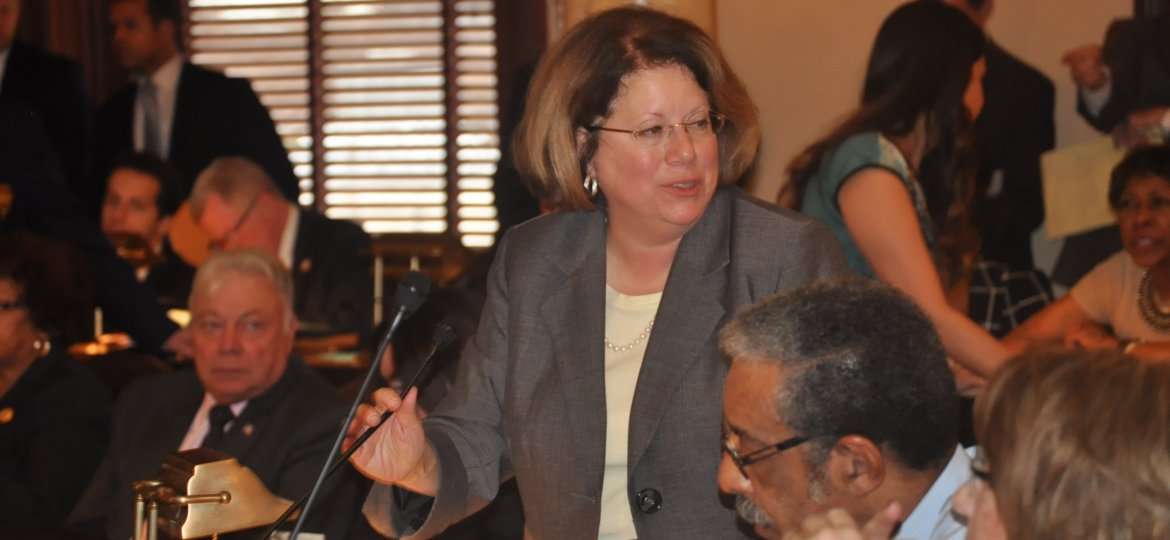
TRENTON – A joint resolution sponsored by Senate Law and Public Safety Chair Linda R. Greenstein that establishes the Commission on Drunk and Impaired Driving to review New Jersey’s drunk driving laws cleared the Senate Law and Public Safety Committee yesterday.
“Our goal is to improve the safety of our roadways, and this commission is an important step in that effort,” said Senator Greenstein (D-Middlesex/Mercer). “This legislation is about taking proactive measures to see what is working and what is not, and working to implement the most effective strategies. This means reviewing our programs and services as well as technology enhancements that we have seen in recent years in order to reduce and prevent drunk driving incidents.”
While the number of drunk driving convictions and intoxicated drivers involved in fatal vehicle accidents continues to decline, drunk driving in New Jersey remains a serious threat to public safety. Based on the most recent report published by the State Police, more than 30% of traffic fatalities in New Jersey involved an intoxicated driver. In addition, the number of drunk driving convictions in New Jersey continues to exceed 20,000 annually.
According to the Centers for Disease Control and Prevention, every day, 28 people in the United States die in motor vehicle crashes that involve an alcohol-impaired driver. This is one death every 51 minutes. The annual cost of alcohol-related crashes totals more than $44 billion.
SJR-34 creates the Commission on Drunk and Impaired Driving in order to examine methods to reduce the incidence of drunk and impaired driving and make recommendations to enhance government services, enforcement, education, and interventions to prevent drunk and impaired driving. The commission will also consider the effects of legalizing recreational marijuana on the problem of impaired driving.
The 22-member Commission will be comprised of individuals to include the Attorney General, the Superintendent of the State Police, the Commissioner of Transportation, the Chief Administrator of the New Jersey Motor Vehicle Commission, and four members of the Legislature, among others.
At a minimum, the commission would consider the following:
a) the effectiveness of the State’s current penalties for driving under the influence (DUI), refusing to submit to a breathalyzer test, driving with a suspended license for DUI, driving without a court-ordered ignition interlock device (IID), and related offenses, in preventing drunk and impaired driving and discouraging repeat offenses;
b) the State’s compliance with current federal law and regulations regarding repeat DUI offenders;
c) the need and practicality of proposals to extend the requirement of IIDs to first-time drunk driving offenders, the need for infrastructure to assure compliance with court-ordered IID installation and monitor IID “lockouts,” and the desirability of alternatives or exceptions to the use of IIDs;
d) the collective economic impact of fines, fees, surcharges, automobile insurance rates, ignition interlock costs, and loss of employment on drivers convicted of drunk or impaired driving;
e) improved responses to repeat offenders, including screening and treatment for alcohol or drug addiction, medication-assisted therapies, IIDs, electronic monitoring, intensive supervision, and criminal prosecution;
f) identifying the most effective delivery of screening and treatment for alcohol or drug addicted convicted drivers, including an examination of the costs and benefits of restructuring county-based Intoxicated Driver Resource Centers into regional addiction, treatment, and counseling centers administered by the Department of Health;
g) the need for procedural safeguards to guide the administrative release of convicted drivers sentenced to jail time to participate in work release or similar programs;
h) the modernization of distribution formulas for alcohol tax revenues dedicated to DUI enforcement;
i) the potential impact of the New Jersey Supreme Court’s holding in State v. Denelsbeck that additional penalties imposed on repeat offenders may trigger the right to a jury trial;
j) whether enhanced penalties for drunk drivers with high- blood alcohol content levels or driving in a school zone are effective in reducing DUI and DUI recidivism;
k) whether a restricted-use driver’s license should be made available to drunk and impaired offenders as an alternative to full loss of driving privileges or in combination with other penalties;
l) ensuring the safety of the public while DUI charges are pending, including use of pre-conviction administrative suspensions, IIDs, or electronic monitoring;
m) improving interagency communication and the integration of State and local automated systems to administer compliance with post-conviction DUI penalties, treatment, and release conditions;
n) other evidence-based best practices for addressing the problem of drunk and impaired driving; and
o) whether the commission should periodically reconvene to examine recent developments and technology for reducing the incidence of drunk and impaired driving and the impact of any changes in the drunk and impaired driving laws recommended by the commission.
The commission would organize within 30 days after a majority of its members have been appointed. The commission would report its findings and recommendations, including legislative proposals, to the Governor and to the Legislature within 12 months of organizing.
The bill was approved by the committee with a vote of 6-0, and next heads to the Senate for further consideration.

